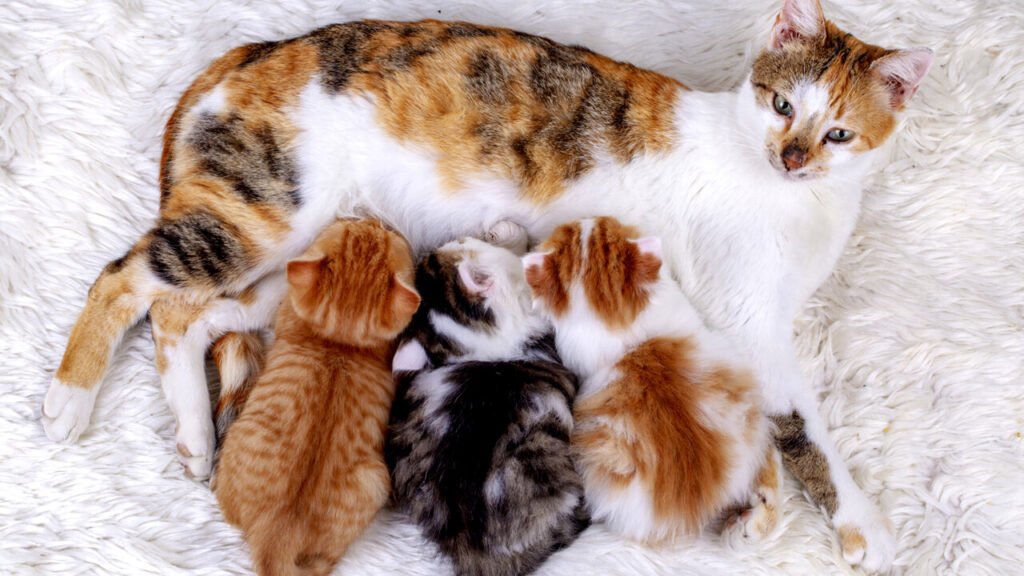itching in cats it is a common disease that can be a real nightmare for the animal and the owner. If our feline friend keeps purring, this is a sign that something is wrong. This behavior can be caused by many reasons, some of which are easy to solve, others require more in-depth intervention.
Causes of itching
One of the most common causes of itching in cats is external parasites. Fleas, for example, are tiny vampires that feed on a cat’s blood, which causes the irritating itch of their bites. It is common for a simple flea infestation to turn into one Flea allergy dermatitiswhere even a single sting can cause a severe allergic reaction.
the acari they are microscopic parasites that burrow into the cat’s skin, causing severe itching and hair loss. Lice, although less common, can also infest cats, causing additional discomfort.
In addition to parasites, the allergies it represents another frequent cause of itching. Cats can develop food allergies to ingredients in their food, as well as environmental allergies to pollen, dust, or mold. An allergic cat may begin to scratch in anger, often without the owner immediately realizing the cause of the discomfort.
Bacterial and fungal infections they can also be responsible for itching. Bacterial infections often develop as a result of scratches and wounds, while fungal infections, such as ringworm, can cause skin lesions and itching.
Poisonous foods for cats: what they are and how to avoid them
Location and symptoms
Itching can occur in different parts of the cat’s body. Often, we see our feline friend constantly scratching his head and neck, which may suggest a food allergy or a flea infestation. The back and tail are other frequently affected areas, especially in cases of flea allergy dermatitis.
Besides digging, we can observe other symptoms; in fact, the The cat’s skin may appear red and inflamedand we may notice areas of hair loss. In some cases, the angry areas may be real injurieswith the formation of crusts. The cat’s behavior may change: the normally calm animal may become irritable or angry.
Lesions due to itching
Severe itching in cats can lead to various skin lesions, which vary in severity and can become complicated if not treated properly. It is important to recognize these injuries in order to intervene quickly and improve the condition of our feline friend.
the lesions due to itching can be the result of several underlying conditions:
-
- Parasites: Fleas, mites and other parasites can cause severe itching, which leads the cat to scratch until it causes wounds.
-
- Allergies: Allergic reactions to food, pollen, dust or insect bites can cause itching.
-
- Infections: Bacterial or fungal infections can irritate the skin, causing the cat to scratch.
-
- Dermatitis: Conditions such as atopic or contact dermatitis cause inflammation and itching.
What are the longest living cats? Let’s discover the result of the search
Medicines and treatments
Solving itching in cats requires a targeted approach, depending on the underlying cause. If we suspect the presence of parasites, the first step is to treat the cat anti fleas e PESTICIDES enough Certain products can eliminate fleas, mites and lice, which can quickly relieve itching.
In case of allergies, it may be necessary change your cat’s diet to identify and eliminate allergens food A veterinarian may prescribe antihistamines or steroids to reduce allergic reactions. For environmental allergies, immunotherapy can be a long-term solution, which gradually desensitizes the cat to specific allergens.
Bacterial infections require the use of antibioticswhile fungal infections require antifungals. It is important to follow your veterinarian’s directions carefully to ensure that the infection is completely eradicated.
To improve the health of your cat’s skin and coat, moisturizing shampoos and lotions, as well as supplements, can be beneficial. omega-3 which helps to keep the skin elastic and well hydrated.
Itching in cats is a problem that should not be ignored. If your cat shows signs of discomfort, it is important to consult a veterinarian to determine the exact cause and carry out the appropriate treatment. With the right attention and care, it is possible to relieve itching and significantly improve the quality of life of your cat friend.

